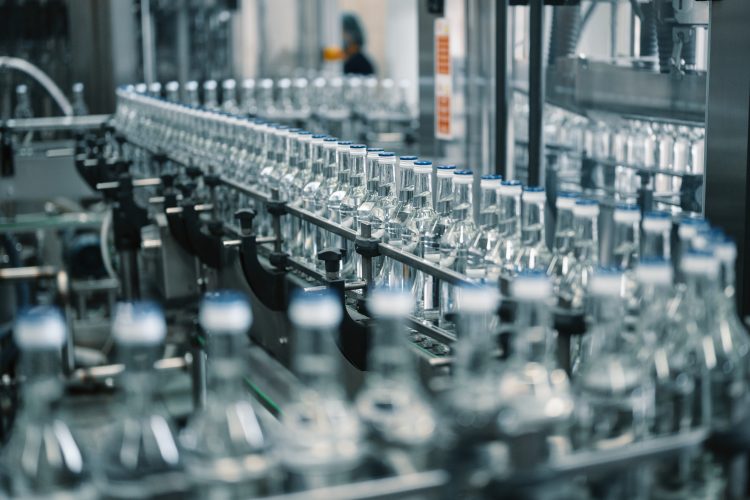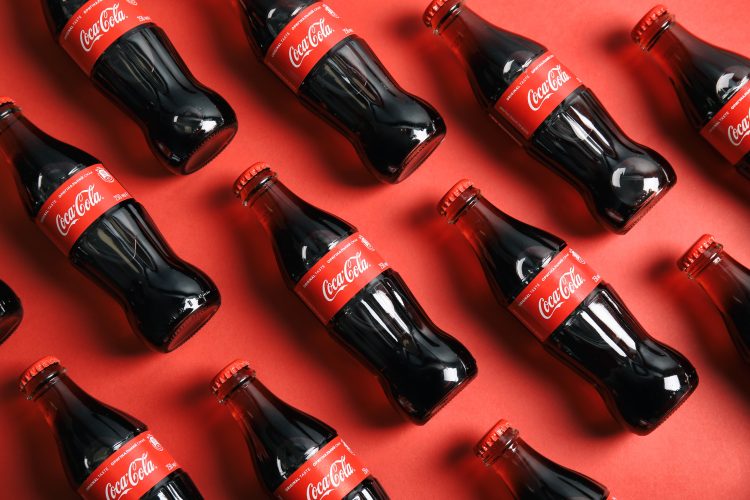Net zero: A half full or half empty promise in the beverage industry?
- Like
- Digg
- Del
- Tumblr
- VKontakte
- Buffer
- Love This
- Odnoklassniki
- Meneame
- Blogger
- Amazon
- Yahoo Mail
- Gmail
- AOL
- Newsvine
- HackerNews
- Evernote
- MySpace
- Mail.ru
- Viadeo
- Line
- Comments
- Yummly
- SMS
- Viber
- Telegram
- Subscribe
- Skype
- Facebook Messenger
- Kakao
- LiveJournal
- Yammer
- Edgar
- Fintel
- Mix
- Instapaper
- Copy Link
Posted: 24 January 2024 | Colin Rodgers | 1 comment
With the beverage industry contributing four percent of global CO2 emissions, how can companies adapt with green initiatives and genuine commitment essential amid evolving regulations? Colin Rodgers investigates.


By Colin Rodgers, Director at V-Tex
The beverage industry has a big task ahead in its eco-journey. In 2021, it contributed almost 4 percent of the world’s CO2 emissions, with reductions creeping along at just 0.7 percent per year, a far cry from what’s urgently needed .
Drinks brands and their partners are now tasked with a radical overhaul that will require an all-hands-on-deck approach to rapidly slash high energy bills and hit looming 2030 and 2050 emissions targets. For starters, partnering up to tackle scope three supply chain emissions is key. Inside the companies themselves, aligning strategies with clear emission goals is vital. This might mean new technology investments, updating operational processes or using data tools to track emission reductions.
This article delves into the transformative journey ahead, exploring innovative partnerships, cutting-edge technology, and strategic shifts within the industry that could redefine its environmental footprint and set a new standard in sustainability.
Are current initiatives more than just talk?
Big players in the beverage world are already stepping up their game with green initiatives, like Carlsberg’s fibre-based bottles, which the brand claim could slash emissions by up to 80 percent compared to single-use glass bottles. Similarly, Pepsi’s new sustainability platform, ‘Partners for Tomorrow’, is a step in the right direction, unifying its environmental efforts, including its CIRQU recycling programme. We’re also seeing companies publicly share emissions targets, including Coca Cola’s 2030 science-based target to reduce absolution emissions by 25 percent compared with 2015 .


Coca Cola has a science based target to reduce absolution emissions by 25 percent compared with 2015.
These changes are encouraging, but they have to truly deliver on green promises, not just a marketing ploy. Coca Cola is a brand that spent more than $4.3 billion in advertising in 2022 so any targets and ambitions must be taken with a pinch of salt. But here’s the catch: it’s not just about reducing emissions. There’s a balance to strike between being eco-friendly and retaining product quality. For instance, switching from classic materials like glass to paper needs to nail the practicality, brand image, and cost trifecta. It’s a tricky balance between green benefits, what the customer wants and what the planet needs.
Addressing external pressures
The beverage industry is also feeling the heat from external sources such as stricter EU regulations and global commitments arising from COP28. The rules of the game are constantly changing, most recently with the EU’s Green Claims Directive introducing a push for more detailed claims about emissions and offsets. In response to growing frustration over greenwashing, companies need to back up their environmental messaging with hard facts, ahead of flashy marketing around contentious carbon offsets.
We’ve seen this growing caution manifest in the last few years; for example, Nestlé’s step back from using carbon offsets for brands like KitKat and Nespresso. The pressure is on for brands to avoid legal action. People are also voting green with their wallets as sustainability is an increasingly big draw for customers who want products with smaller carbon footprints, sustainable packaging, and ethical production lines.
The supply chain challenge
Wrestling supply chain emissions (92 percent of the emissions pie) offers another golden opportunity to dial down environmental impact. It’s a mammoth task to say the least. Plastic packaging is the EU’s main source of plastic waste, with food and beverages making up two fifths of it. Meanwhile, data from 2022 suggests a European beverage manufacturer would have to fork out an extra 20 percent of costs to only use recycled polyethylene terephthalate (PET) for its bottles.
Businesses are tweaking their processes to reduce water and energy use as well as waste. However to enact change fast enough, we need to see more of a push for collaboration and joint eco-friendly investments. The Beverage Industry Environmental Roundtable is a great example of how the industry can come together to pool resources. Sharing know-how is key, especially for smaller suppliers who might need a hand in greening up their operations. It’s also an opportunity to strengthen ties with other business and provide long-term stability.
This means having a clear strategy in place to achieve net-zero goals that will offer a framework and benchmark for businesses and their partners to score themselves against. While this may sound daunting, brands which are transparent about their emissions whilst looking to improve their green credentials and processes are more attractive to current and future partners.
Technology and innovation: The new frontier
Fortunately, the beverage industry is getting a tech makeover to tackle its environmental challenges. Take rapid chilling drinks coolers. These nifty devices reduce electricity use and carbon footprint of bars and retail outlets by substituting 24 hour refrigeration for on-demand chilling, offering energy savings of 50-90 percent compared to traditional refrigeration methods. The industry’s diving into other smart refrigeration methods too, including alternative, planet-friendly refrigerants to further reduce emissions from the ‘cold chain’ – the journey drinks take while staying cool.
It’s not stopping at refrigeration either; the entire production line is getting smarter. Companies are switching to energy-efficient machines and tapping into renewable energy. Smart factories are deploying high-tech sensors to track machine elements like performance and temperature to ensure kit on the factory floor is working at optimal efficiencies. Artificial intelligence (AI) and the internet of things (IoT) are playing growing roles here, helping to autonomously act on performance data. The global electrification drive is another green catalyst, offering more sustainable electric delivery vehicles, smarter routing software and AI-driven supply chain management.
Packaging’s also getting a high-tech boost. The shift from traditional materials to greener alternatives like biodegradable and recycled alternatives is accelerating. While sustainability has a reputation for being more expensive, brands can actually cut cost by saving on energy or by using recycled materials. Used drinks cans in Europe are actually 20 percent cheaper than new aluminium. Forward-thinking brands will go one step further and shout about these innovations to customers to encourage them to drink more sustainably, creating a positive feedback mechanism that drives further investment in new technology.
A glass half full
The beverage industry stands at a pivotal moment in the face of tightening green legislation, evolving consumer demands and economic headwinds. With technological innovations, a push towards sustainable practices, and increasing external pressures, it’s more than just a race against climate change; it’s now about realising a transformational shift in operations and ethos. The industry is embracing change, but the real test lies in delivering on green promises while balancing quality, cost and speed.
Smarter production, eco-friendly packaging, and collaborative supply chain strategies are many of the tools available. But to make the most of these, brands need clear environmental goals that will hold them and their partners accountable for any shortcomings. The future of our world depends on the drinks industry ensuring business success and environmental responsibility are not just aligned, but inseparable.
About the author
Colin Rodgers has a career spanning three decades in the consumer electronics industry. His impressive achievements include leadership roles at industry giants such as Sony Music, Toshiba, Sharp and Samsung Electronics. In his current position at Enviro-Cool V-Tex Ltd, Colin works tirelessly to drive business growth, with a focus on championing V-Tex, the revolutionary new technology for chilling drinks rapidly on demand.
Related topics
Beverages, Health & Nutrition, Research & development, Supply chain, Sustainability










In recent years, there has been a significant shift towards health and wellness, influencing beverage choices. Consumers are seeking beverages that align with their health goals, such as low-sugar, low-calorie, and nutrient-rich options.